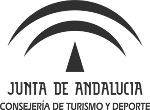Effects of respiratory muscles training on performance
Literature review
Abstract
It is currently accepted by the scientific community that the respiratory system may limit the exercise in people with lung disease and / or cardiovascular disease. The aim of this study is to review some studies about the limiting role of the respiratory system in the physical performance of athletes and the breath factors that can limit it. We make a brief technical description of the devices used for respiratory muscle training. Finally, we present the most representative results obtained by different researchers in different populations, related to respiratory muscle training and its effects on physical performance.
Results obtained in different studies about respiratory muscles training are uneven as some have shown significant improvements, while others have shown no major effects on the performance. All of them reflect that respiratory system is a limiting factor in the physical performance of athletes and it is necessary to consider new methodologies, protocols and plans in sports training.
Respiratory muscles training, either by a threshold device, resistance, or isocapnic, may cause improvements in the values of maximum inspiratory pressure and improvements in some sports performance, however, very few studies have found improvements in peak oxygen consumption.
Disagreements between the analyzed studies may be caused due to differences in intensity and duration of the exercises used in the tests, as well as by differences between the experimental design and the physical fitness level of subjects.


